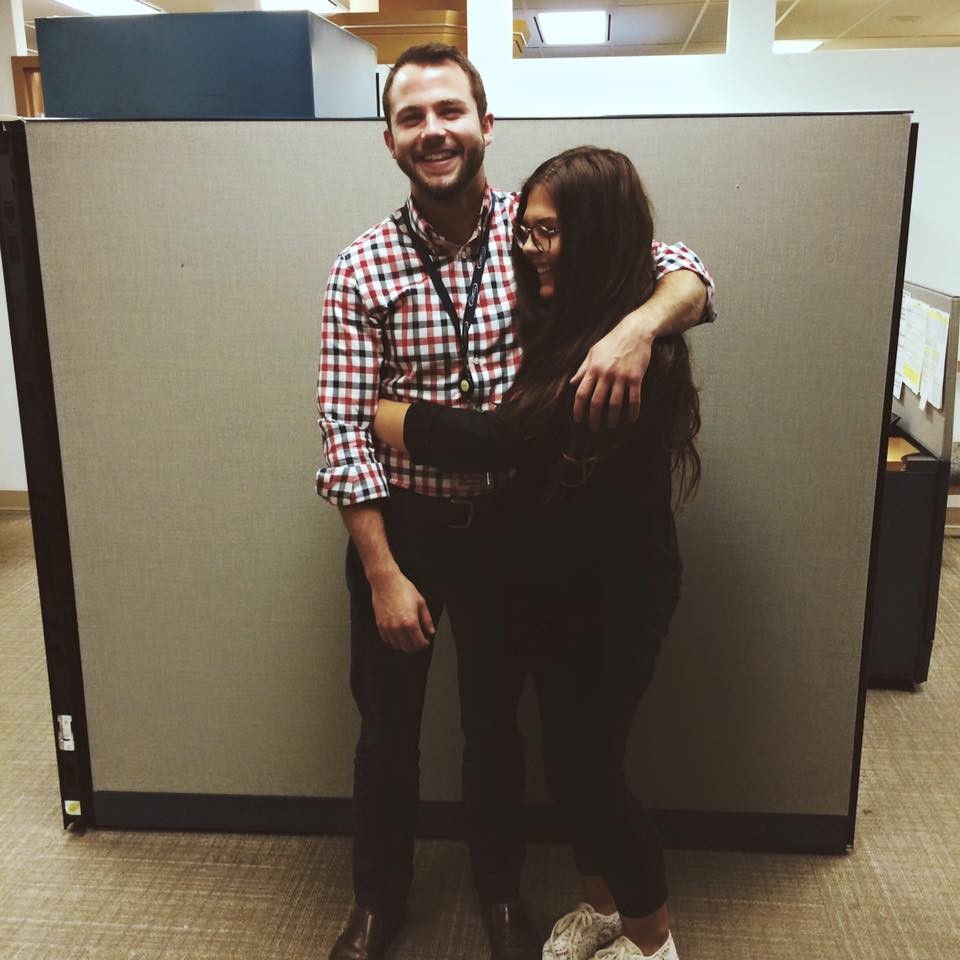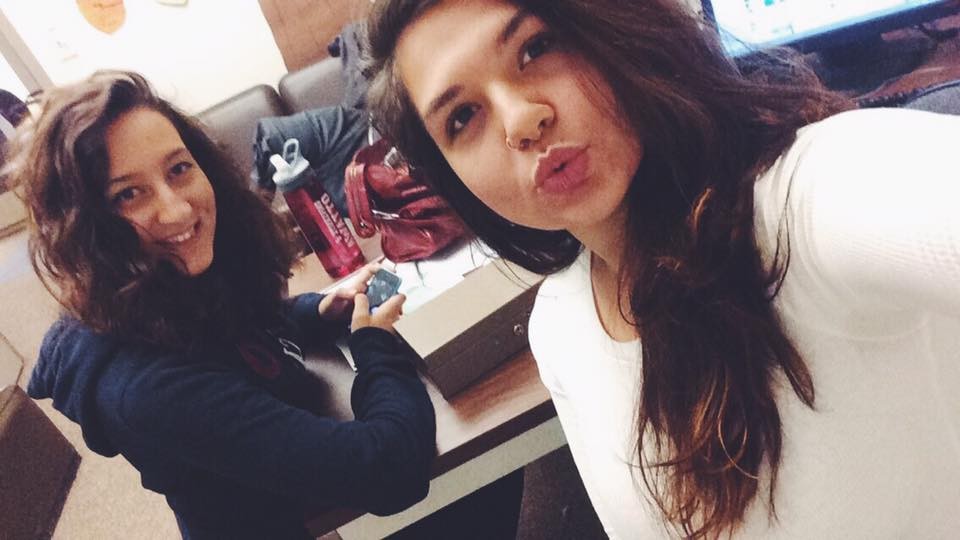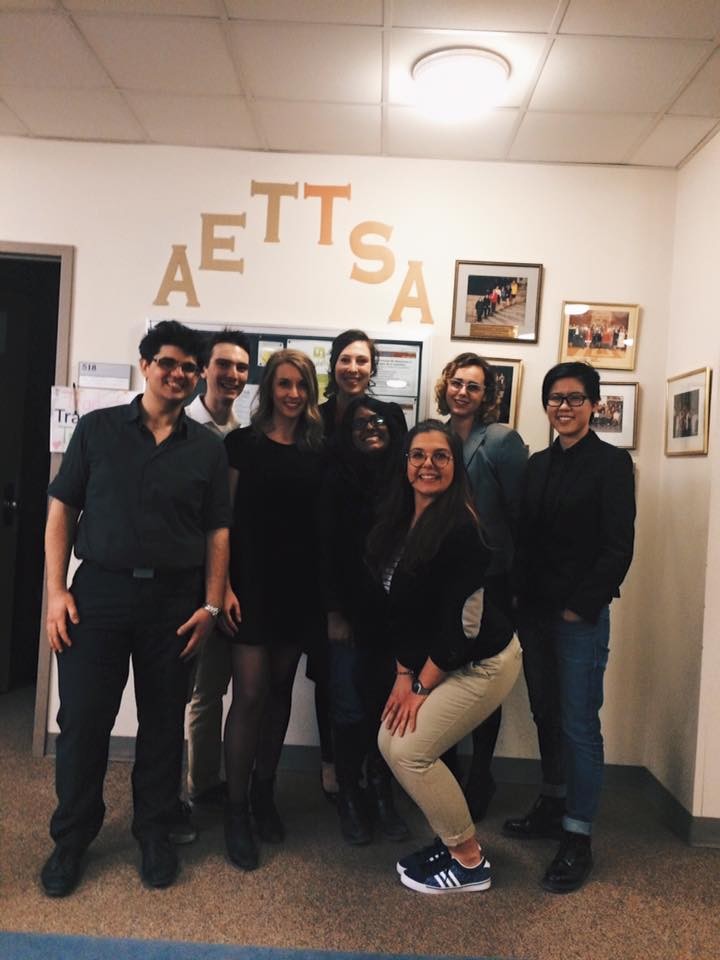The Financial Truth About International Exchanges
As the world is becoming more and more globalized, people are travelling more and more. With that being said, more students than ever are going abroad to study. Whether is be one semester, or the entire academic year, it is an amazing experience that students will remember for a lifetime.
If I could, I would make knowing a foreign language and doing an exchange mandatory, so students could truly become global citizens, and experience a new language, culture, and lifestyle.
As amazing and dreamy an exchange may seem, there is a lot more to it than meets the eye. And as much as I encourage everyone to participate in an international exchange, I must say, they require a lot of preparation and planning ahead - especially financially.
I have said this, and I will say it again, it is never too early to start planning an international exchange, as it really is not a small thing. You will be doing your entire life on the other side of the world! It is not simply a two-week vacation.
The University of Ottawa's International Office does its best to encourage and promote international exchanges, but they do not tell you how much preparation is needed.
I, myself, am honestly shocked by how unprepared many people are going into these exchanges, with absolutely no prior planning or savings.
No one likes to hear this, but exchanges are expensive. Especially if you are going to Europe. Exchanges will cost you a good amount of money. And let me tell you, going in with a solid pile of money in savings will make your life so, so, so much easier. If you go on an international exchange on student loans, and a student line of credit, you will be in major debt after your return, and you will not be able to fully enjoy your experience abroad knowing that you will come back to at least $5, 000 in debt.
The best advice I can offer someone who is even only thinking about going on an exchange - start saving as early as high school, or in your first year of university. It may seem like it is too soon, but in reality, the more money you have when you leave, the more you will be able to do abroad, and you will be able to come back to Canada knowing that you will nor need to spend the next few years of your life working to pay off the debt of your international exchange.
If you are going to Europe, it would be a shame not to take advantage of cheap airfare, and short distances. I am saving up all my money right now just so that I can travel around Europe, and reap all the benefits that come with living in Europe for the year. It would be such a shame if you went to Europe, and only stayed in your host country, without seeing at least five other surrounding countries.
Not to also mention the amazing European cafe culture, delicious cuisine, amazing shopping, phenomeal nightlife, and exhilirating sporting events. How can we forget the most important things: a place to live and food?
It all adds up. And it can be a lot.
I have been saving up for my international exchange to Spain since I was in my first year in university. During the school year, I worked as an English teacher. The summer after first year, I worked full-time, 40 hours a week for a private corporation. This is where I made the bulk of my Europe money. In second year, I worked a total of three jobs. I worked as a receptionist. I was an English teacher. I worked coat-check at a nightclub. I did all of those on top of being a full-time student. Now, it is the summer after second year, and I am back at my full-time, 40 hours a week job at the private corportation. During the summer is where I make the most substancial and significant amount of money. As the famous saying goes, "work hard, play even harder. " I was permanently exhausted during my second year of university, just so my third year in Spain could be memorable.
But now you will see why. I will list all the expenses I have had so far - including simply in applying for the international exchange, and the visa application process.
Note: All of the above documents are required in order to apply for a Spanish student visa. If you want more information about applying for a Spanish student visa, you can check out my other blog post here.
So, I have not even left for my exchange yet, and I have already spent $2, 630. That is not a small amount of money.
Though, there is some good news. If you are going on an exchange, and your home institution is the University of Ottawa, you will definitely get one scholarship, and you totally have the chances of getting other scholarships and bursaries.
You automatically get a scholarship if you are accepted to do an international exchange at the Unversity of Ottawa. This is called the Student Mobility Scholarship.
If you are studying in a different Canadian province for one semester, you will receive $500CAD.
If you are studying in a different Canadian province for the whole academic year, you will receive $1, 000CAD.
If you are studying abroad in a different country for one semester, you will receive $1, 000CAD.
If you are studying abroad in a different country for the whole academic year, you will receive $2, 000CAD.
However, it is very important to be careful about how the University of Ottawa advertizes this scholarship. You will definitely see around campus posters that say "Your plane ticket is already paid for! "
Truth be told, this is definitely not the case. This amount, whatever it may be, will be deducted from your total tuition amount. Which may save you money if you pay your tuition every year from "loose" money. For example, my parents pay for my tuition through an RESP - so this deduction does not help very much in terms of the actual international exchange.
That being said, these scholarships do help, however, they cannot fully cover the costs associated with a mere student visa application.
If you are a resident of Ontario, then you may be eligible for a grant from the Ontario Student Assistance Program (OSAP). Essentially, if you are a resident of Ontario and your parents, or you (depending on who pays for your university tuition) make less than $160, 000CAD combined, after taxes, then you are eligible for this grant. The amout of this grant depends on the amount of money your parents make, and on how much your tuition costs. You can read more, calculate your eligibility, and apply for your Ontario Student Assitance Program grant here
For the 2016-2017 academic school year, my tuition for the Faculty of Arts at the University of Ottawa comes to almost $7, 000CAD. My Ontario Student Assitance Program grant came to $1, 900CAD.
There are many, many internal scholarships and bursaries available at the University of Ottawa that you can apply for. If you are eligible for OSAP, this can work in your favour. You must complete your online Financial Questionnaire, and indicate that you receive government assitance. Receiving government assistance indicated that you have "financial need, " thus being eligible for more grants and bursaries. There are over 15 pages of scholarships and bursaries available on the Online Scholarships and Bursaries portal on your uOttawa uOZone account, so make sure to check them out and apply!
You faculty and department will also most likely have some type of scholarship, or scholarships available exclusively for students in that faculty. Make sure you apply, because not many people do, and your chances will increase. Although department and faculty scholarships are not large sums of money, you must have the mindset of "any money helps. " And it really does. In my second year of studies during the 2015-2016 academic year, I applied for the Students' Association of the Faculty of Arts Scholarship, and received $325CAD.
Just for my exchange, I have received a total of $4, 225. It all adds up! How you decide to spend this money is completely up to you. But I would recommend that you use it for your airfare, or to pay off several months' rent.
I will further explain why it is important that you save up money for your exchange.
When I am in Barcelona for my international exchange, I will be staying at La Residencia Reina de la Pau. You can read more about the residence here, if you are interested in staying here for your international exchange, or during a vacation to Barcelona.
I am getting a single bedroom with a private bathroom. My plan includes breakfast and lunch, with weekly room cleaning and change of bedsheets. My montly rent will cost €803 with VAT included. Utilities and internet are also included in the price. When you compare everything included in my monthly rent, and when you compare it to Canadian standards, it is an amazing deal.
€803 is equal to around anywhere from $1, 150CAD to $1, 175CAD, depending on the currency exchange rate.
I will be staying in Barcelona for a total of ten months. Let us now do the math. We will take the more expensive currency exchange rate, just to be better prepared.
$1, 175CAD x 10 = $11, 750CAD.
Almost $12, 000 for rent is not at all cheap. Now, we will subtract my scholarship money from this amount.
$11, 750CAD - $4, 225 = $7, 525CAD.
Even though it is a lot less than the original price, it is still a large sum of money. And remember, this is only for a place to live, and two meals a day. We must also take into account eating out, travelling, and personal expenses.
My tip for you: start working during the summer after you finish high school. Work part-time, around ten to fifteen hours a week during your first year of studies. Work full-time, a full 40 hours a week for the whole summer, and then switch back to part-time during your second year of studies. And then work full-time, as much as you can for the summer before you leave for exchange. This way, you will be able to save up a large sum of money that will have you more or less financially prepared for your exchange.
Luckily, I am able to pay for my rent via bank-to-bank transfer, so I will be able to pay with my currency, the Canadidan dollar. However, for other things, I will obviously need Euros. My Canadian money will all be going to pay my rent, and my Euros will be going towards things like travel, eating out, clothes, toiletries, and more.
I will be going to Barcelona, Spain with €8, 220. This is currently, on this day, June 28 2016, equivalent to $11, 867CAD. Which is still a huge sum of money. Combine this with the amount of rent I will have to pay, it comes to a scary $19, 392CAD.
An international exchange really is like an investment. If I did not have the savings I have now, I would easily be $20, 000CAD in debt, or even more. Which could take quite a few years to pay off.
But don't worry. If you get an early start on saving, you will be fine.
Here are some savings tips that helped me save up for my exchange:
Note: This is simply advice. The calculations and costs I indicated above are from my personal circumstances. They are just there to give you an idea about how important it is to prepare financially. Other countries in the world may not be this expensive, but it is important to prepare regardless.
Happy work, happy earning, and happy saving!
P. S. Below are photos of me at my various jobs. There are proof that work can actually be fun!




Wondering how much it costs to study in Spain? This article will help you break down the costs of studying at a public university there.
Photo gallery
Content available in other languages
Want to have your own Erasmus blog?
If you are experiencing living abroad, you're an avid traveller or want to promote the city where you live... create your own blog and share your adventures!
I want to create my Erasmus blog! →















Comments (0 comments)